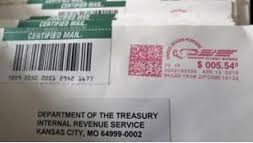Is an Offer in Compromise the Right Tax Settlement Option for You?
An Offer in Compromise is a tax settlement option that allows a delinquent taxpayer to settle a back tax balance for less than the full amount owed. While it is an excellent way for a taxpayer who meets the IRS eligibility criteria to resolve a tax debt, not all taxpayers qualify. Because the acceptance criteria are specific and the application process is long and complicated, it is often best to consult a qualified tax professional for help with this tax settlement option.
What are the Offer in Compromise eligibility criteria?
A candidate for an IRS Offer in Compromise must meet one of the following three eligibility criteria: 1) doubt as to whether they are liable for the tax debt, 2) doubt as to whether they have the financial means to pay the full balance of the tax debt or 3) a determination by the IRS that an would be an effective means of resolving the tax debt.
What is the process for obtaining an Offer in Compromise?
- Make an accurate determination of the back tax balance.
File all unfiled tax returns. Check previously filed returns for accuracy and file amended returns when necessary.
- Determine and document eligibility.
Gather sufficient documentation to support one of the three Offer in Compromise eligibility criteria. This documentation may include tax returns, financial records, disability claims and medical records, among other things.
- Submit the Offer in Compromise application.
Complete all necessary forms according to the set IRS guidelines and submit together with the necessary supporting documentation and required filing fees.
- Supply additional information as requested.
Promptly submit any documentation requested by the IRS during the review period.
How long does it take to obtain an Offer in Compromise?
The IRS will begin to review an Offer in Compromise application as soon as it is submitted. The review process normally takes between six and twelve months but can take up to a maximum of two years. If the IRS does not officially accept or reject an Offer of Compromise petition within two years from the date it is submitted, they are mandated to accept the original offer.
What options are available for paying the balance of an Offer in Compromise?
Once on Offer in Compromise is accepted, three payment plans are available to pay off the settlement amount. The three plans, which differ as to the amount of the initial payment, the number of installment payments and the time period over which the installments are made, are designed to accommodate taxpayers with varying back tax balances and financial situations. The three available payment plans are as follows: 1) the Lump Sum Cash Payment, 2) the Short Term Periodic Payment and 3) the Deferred Periodic Payment. These three plans allow for an Offer in Compromise settlement amount to be paid in full in anywhere from five months to more than 25 months, but within the ten year statutory collection period.
If you have an unresolved tax debt, visit us today at www.professionaltaxresolution.com. With over 16 years of experience working with the IRS, our experienced professionals will help you determine which tax settlement option best meets your specific needs. Contact us by phone at (877) 889-6527 or by email at info@protaxres.com to learn more about our customized tax settlement services and to receive a free, no obligation consultation.





